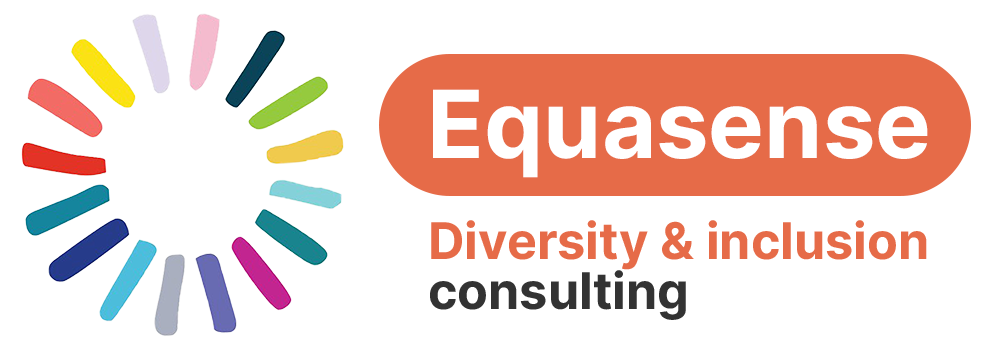Growing inclusive mindsets and inclusive organisations doesn’t happen by magic. It requires deliberate action. There are lots of possible actions whether you want to start with yourself, your team as individuals or your organisation. It’s really important that the actions you take are tailored to you but there are a few general themes and ideas that most people could benefit from considering.
Here’s the 22!
- Re-think capitalisation – no, not the economy- using all capitals in text can make it very difficult for people to read (as all words have similar shapes) and for text readers.
- Publish salary ranges on job adverts and don’t ask previous salary on applications and at interview – doing this will help you reach more women and reduce your gender pay gap.
- Check the imagery you are using – images showing diversity of e.g. staff can be helpful but only if they are authentic. Stock photos can cause more resentment than showing a real lack of diversity.
- Consider your own horizons – how broad are your influences? For 2 weeks make a note of the things you read, watch or listen to. How similar are they to each other? We learn from the things we read, watch, listen to or do.
- Try out some inclusive language. Ditch he/she and use “they”. Ditch “ladies and gentlemen” and use “Everyone”. Ditch “boys and girls” and use “children”. Worried about grammar? You are almost certainly already using “they” as a singular. Imagine that you are waiting for a pizza delivery but it’s late. Many people would say “where are they with my pizza?” without even blinking.
- Extend the flexibilty and approach that you take towards parents in the workplace to carers of all sorts. You don’t need to know who they are caring for or why, just that they have this role.
- Re-consider the use of CVs in recruitment. CVs are places where lots of unnecessary information is given that can spark bias (e.g. school, universities) interests.
- Be honest with yourself about your own biases. Some you will be
conscious of (if you are really honest about it), but you may have others you are not aware of but nonetheless are affecting your decision making. You could try a Harvard Implicit Association Test - Run inclusive meetings – circulate agendas and papers in advance, time for the middle of the day, make sure everyone has an explicit opportunity to speak on each item even if they choose to pass (including those joining remotely), allow people an opportunity to follow up with more thoughts afterwards if appropriate.
- Adopt some form of Equalities Impact Assessment for big decisions and policy changes (this is already required by law in some cases).
- Get to grips with your equality and diversity data, including recruitment, promotion and representation data.
- Start listening to hear people’s lived experiences at work – run a survey, focus groups, staff networks or engagement groups.
- Learn the ways you can intervene safely (including after the event) when something happens that isn’t right (intervention and active bystander skills)
- Trial anonymising applications – people with names that imply they are women or from a minoritized ethnicity receive less interview offers. Make sure your screening algorithms (if you use them) aren’t throwing out a disproportionate amount of any social group.
- Hold some of your social events in locations where alcohol is not
available (ever). - Create an events checklist that includes FULL access to transport,
building, speaker platforms, refreshments and other activities (including sign language, captioning etc) - Discuss the team culture (“the way things are done around here”)
regularly with the whole team so there are no “hidden rules” that only some are aware of. - Get to know all your team or family as individuals – what makes them most effective in the workplace, what barriers they face (if they are comfortable sharing). Don’t assume.
- Beware the social media algorithms that feed you more of the same and put you in an echo chamber of increasingly similar views
- Avoid organising business events and meetings with food during
Ramadan - Normalise conversations about inclusion, equity and belonging
- Bring new experiences and ways of thinking into your life. Read, listen, watch and meet people who aren’t like you at first glance, even if you disagree with them


Recent Comments